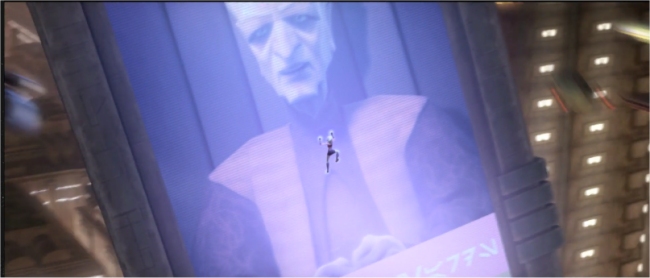Stray Togruta

Seven Samurai and The Hidden Fortress aren't the only Kurosawa films that have been translated to Star Wars. I recently watched "Lightsaber Lost" again, a second season Clone Wars episode written by Drew Z. Greenberg based on a film noir directed by Kurosawa in 1949 called Stray Dog. I was also afforded an opportunity to marvel at and ponder over why Clone Wars succeeded so well where Rebels did not (Resistance isn't even worth mentioning).
Unlike Hidden Fortress and Seven Samurai, Stray Dog has a contemporary setting--that's one of the quite remarkable things about it because it features extensive location footage of Tokyo's massive black market amid ruins in the aftermath of World War II. Against this backdrop we have the story of a young cop, Murakami (Toshiro Mifune), whose pistol is stolen by a pick-pocket. His frantic search for the item shows his sense of duty and honour in how urgently he desires to get it back. His youth and inexperience compels him to play rough with suspects or plead with them pathetically. An older cop, Sato (Takashi Shimura), takes him under his wing to show him the value in being friendly with potential informants and in taking a slower and subtler approach.

In "Lightsaber Lost", Ahsoka (Ashley Eckstein) loses her lightsaber to a pickpocket. She partners up with an elder Jedi who shows her the value in slow and careful detective work even when Ahsoka's anxiety compels her to rush pell-mell after her target. The episode features some wonderful chase sequences on Coruscant, including a bit where Ahsoka gets stuck on a massive video screen showing a pontificating Palpatine.
Greenberg, like many of the writers of Clone Wars' best episodes, hasn't written for Star Wars since Disney purchased the franchise. But, while it may be my imagination, I maintain there's a fundamentally different feeling to the stories for more reasons than that. One way I might put it is that Clone Wars has a greater sense of freedom, the feeling that at any moment the story could go in almost any direction. There were clear boundaries on Rebels and so far on The Mandalorian. I don't think Disney would allow a young protagonist make a mistake that she feels so much anxiety about--or be as willing and eager to torture suspects like Ahsoka, Anakin's padawan. The movies are a different matter--one of the reasons Rogue One is the best of Disney Star Wars so far is for how morally grey its protagonists were allowed to be, particularly Cassian Andor. Which raises an interesting question about the upcoming series centred on Cassian. A neutered Cassian Andor would be a particular egregious case of missing the point. The Mandalorian could stand some shadows, too.
The tragedy is that, if Disney institutes this policy under the theory that it's better for children, they're very wrong. I can see kids getting a very valuable lesson in personal responsibility by empathising with Ahsoka in "Lost Lightsaber" along with some potential respect for their elders.